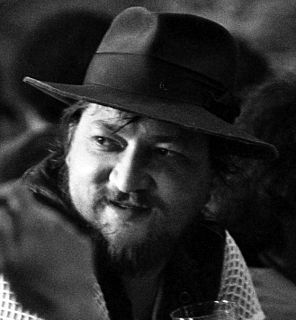A Quote by Tom Shields
Old texts, myths, and religions have always fascinated me, though I prefer learning about them to writing papers and trying to make thoughts and arguments regarding their effect or meaning - this being the essence of my time in religious studies.
Related Quotes
It’s a way of life to be always texting and when you looks at these texts it really is thoughts in formation. I do studies where I just sit for hours and hours at red lights watching people unable to tolerate being alone. Its as though being along has become a problem that needs to be solved and then technology presents itself as a solution to this problem…Being alone is not a problem that needs to be solved. The capacity for solitude is a very important human skill.
It's not about superheroes. This is the method of universal storytelling that all people have... To me, they're the same as the Greek myths or the Roman myths or religious figures of every religion. These are common characters that we use to express stories about being a better person or what you would do when faced with various things.
Even though their arguments did not invoke religion, I think we all know what's behind these arguments. They're trying to protect religious beliefs from contradiction by science. They used to do it by prohibiting teachers from teaching evolution at all; then they wanted to teach intelligent design as an alternative theory; now they want the supposed "weaknesses" in evolution pointed out. But it's all the same program - it's all an attempt to let religious ideas determine what is taught in science courses.
Even in an advanced stage of civilization, there is always a tendency to prefer those parts of literature which favor ancient prejudices, rather than those which oppose them; and in cases where this tendency is very strong, the only effect of great learning will be to supply the materials which may corroborate old errors and confirm old superstitions. In our time such instances are not uncommon; and we frequently meet with men whose erudition ministers to their ignorance, and who, the more they read the less they know.
Writing, for me, when I'm writing in the first-person, is like a form of acting. So as I'm writing, the character or self I'm writing about and my whole self - when I began the book - become entwined. It's soon hard to tell them apart. The voice I'm trying to explore directs my own perceptions and thoughts.
Writing has taught me a lot - though far from everything - about writing, so as time has passed, it has become more pleasurable if not easier. I've done other things in life, but writing is by a factor of 10 the most difficult among them. And, of course, you never achieve what you set out to achieve, so you must keep on trying to do better.
Because most of the girls were still in mourning and all of them had lost their textbooks, even pencils and pens, Shaukat Ali began the first classes by reading to them from poetry and religious texts. "Reading, literature, and spirituality are good for the soul," he told them. "So we will start with these studies.
Myths are about the human struggle to deal with the great passages of time and life--birth, death, marriage, the transitions from childhood to adulthood to old age. They meet a need in the psychological or spiritual nature of humans that has absolutely nothing to do with science. To try to turn a myth into a science, or a science into a myth, is an insult to myths, an insult to religion, and an insult to science. In attempting to do this, creationists have missed the significance, meaning, and sublime nature of myths. They took a beautiful story of creation and re-creation and ruined it.

































